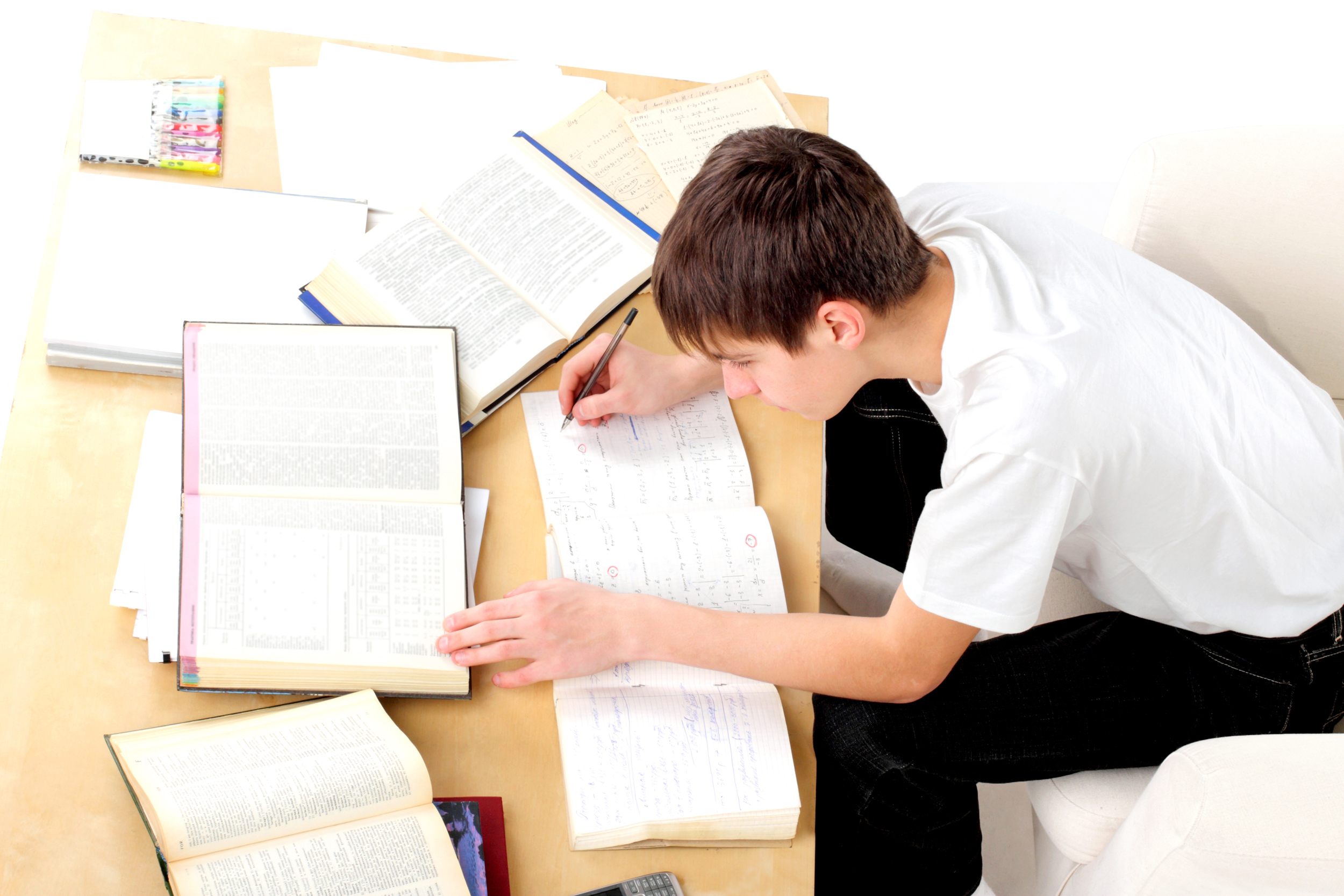What to expect during the GCSE years and how to support your child
If you have a child about to embark on their ‘GCSE journey’, there are probably any number of questions spinning around your mind. Aside from the obvious one (which is “where has all the time gone? It only seems like yesterday they were at primary school!”) you might well be wondering about the new style of GCSEs, how to encourage good study skills from the outset, and what you might be able to do to support your child in their studies. This blog aims to provide a short introduction to what to expect during the GCSE years – and what you might be able to do to help!
The new GCSEs
In recent years, GCSEs have changed. In short, the new courses include much less coursework (or controlled assessment) than before, with only some of the more practical subjects like Dance, Art and Drama containing this element of assessment. Most exams will now also be taken at the end of a two-year course, removing the module system that was previously in place for some subjects. Also, in many subjects there have been some changes to the content that they study, and students will be required to answer more essay-style questions too. There is also a new 9 to 1 grading system. There is a more detailed blog on this topic here.
However, whilst your child might well think that GCSEs are ‘far too hard now’ and they’re ‘never gonna be able to do them’ – it’s important that we reassure them that GCSEs may well have changed, but they are still there to do the same job that they have always done. That is, to assess how well you have got to grips with a particular subject! If you are a good geographer or historian, who has worked hard in class and at home, listened to advice from teachers, attended school regularly and tried their best, then you will be rewarded with the grade you deserve. GCSEs may well have been ‘reworked’ but they will still assess the same skills, knowledge and understanding that they have always done. They might get students to do things slightly differently – but the good scientists and linguists, for example, will still be rewarded with the good grades! Panic over!
How schools ‘set up’ for GCSEs
Some schools (including my own) now have a two-year Key Stage 3, which leaves three years for their GCSEs at Key Stage 4. Other schools have stuck to the more traditional division between the key stages, with a three-year Key Stage 3 and a two-year Key Stage 4. No matter how your child’s school is set up, the chances are that for some of their new GCSE subjects, they will have more lessons in that subject per week than ever before. This is because there is ‘space’ in their timetable as a result of them ‘dropping’ some subjects. For example, your child may have had one or two lessons of History and one or two lessons of Geography per week in Key Stage 3. However, they may have chosen to do GCSE Geography and ‘dropped’ History – so they will probably now have three (and in some cases four) GCSE Geography lessons per week.
If we keep with the Geography example, the department has free reign in how they follow the specification (course of study) they have chosen. They may choose to start at the top of the list of course topics and work their way down it. However, they may split the course up into units and study different units on different days. Some Geography departments I know study Human Geography for two of the four lessons and Physical Geography for the other two. This might result in several different exercise books for the same subject – and this is something that you might be able to help with! Just being aware of which books they need to take on particular days and creating a space for them to keep their books handy will reduce stress levels no end when they are scrabbling around searching for their school books at 8am. Further, I would certainly make sure you know what Examination Board and specification your child is studying for each of their subjects (get your child to ask their teacher). In short, there are several main government-approved Examination Boards that provide GCSE courses and exams for students. Each subject at your child’s school will have chosen one of these courses to follow. Make sure you know if your student follows the AQA History course or the Edexcel one, for example. It means that throughout your child’s time studying GCSEs, you can go onto the exam board website and download all sorts of free resources to help support your child’s learning, including specimen and past exam papers, mark schemes and example answers.
Encouraging good study skills
Your child may feel really overwhelmed when they start their GCSEs, which is totally understandable. I think that parents can help take some of the sting out of the ‘stressing’ they will inevitably do:
- They will very probably get homework (although some schools now follow a ‘no homework policy’). Those that set homework (most do) will publish a Homework Timetable, which has been designed to be manageable. Make sure you have access to that timetable and act quickly if your child isn’t sure what to do. No teacher takes pleasure in a child doing homework badly (or not at all). The homework is given to enhance learning, so if your child is unsure, simply write a short note asking for the teacher to explain the homework again.
- Creating a study ‘space’ is a really positive thing to do – away from all distractions if at all possible. I know this is very difficult in some families – but a small, quiet area where your child can take ownership of their learning should bear fruit in the future. Then, make sure your child has everything they need – notebooks, revision books, pens, paper, post- it notes, index cards etc. Perhaps buy folders that allow them to divide and organise their work into sections, so their work is easy to access.
Each department in your child’s school will have an assessment policy relating to how they want to track the progress the students are making. It might (and probably will) involve smaller tests at regular intervals (one test every half term is common) and a larger ‘exam hall exam’ at the end of the year. It is important that you try to keep these tests and exams in perspective. Until your child gets to the end of the course, in the Summer term of Year 11, these tests and exams are simply a way of the teacher seeing if what he or she has taught you has sunk in. They are as much a test of the teaching strategy used by the teacher as they are of the student themselves. They indicate to the teacher what they need to go through again with the student – as well as what the student needs to pay particular attention to themselves. When it comes to sitting down and doing some revision though, here are a few top tips you might like to share:
- Help your child create an overview of what they need to revise and break each subject down into manageable chunks. This is where knowledge of the Exam Board specification will help.
- Set definite start and finish times for revision sessions and have a clear goal for each session.
- Get your child to ask your teachers for practice questions or past papers.
- Get them to practise making plans and answering questions under timed conditions.
- During breaks do something completely different – listen to music, have a chocolate biscuit, make a cup of tea for example.
- Ensure they make their revision active. Don’t just allow them to read notes – make flash cards, mind maps or use the post-it notes you bought when setting up a study space.
Further support
As well as knowing what exam board specification your child is studying for each subject, it might be worth investing in some of the approved resources that may well be used by the school. For example, if your child does History, there is every chance that the school History department will use one of the ‘Exam board approved’ textbooks. This might be a worthwhile purchase as it allows you to follow what they are doing in class – and even means you could set little recall tests for your child – nothing over-complicated – but a message that home is ‘on it’ as much as school!
It also might be worth thinking about your family’s “away day trips” a little more carefully. Trips to art galleries, river valleys, coastal zones, science museums and heritage experiences such as castles, battlefields and cathedrals might brighten up some of the topics in school. My daughter, for example, is studying GCSE History and was recently doing a unit on Medicine in Britain, c1250–present. When we went to Edinburgh on a recent family holiday, I made sure we visited James Simpson’s house on Queen Street and went to the National Museum of Scotland to see Alexander Fleming’s Nobel Prize for Medicine. The Art, Design and Fashion galleries were also of specific interest for her GCSE Design and Technology studies.
Finally (and I think this is perhaps one of the key elements of parental support) it’s important not to stress too much about the transition! In the same way that primary schools aim to form the bedrock of knowledge, skills and understanding that students will need as they progress to secondary school, the secondary school will have been preparing your child for their ‘GCSE journey’ throughout KS3. And, of course, if you do have any concerns about your child’s progress, attitude or effort, just be sure to use parents evenings as an opportunity to develop a positive relationship with the teaching staff – they absolutely want your child to do as well as you do!
Useful websites:
Revision and exam practice support from Oxford
Exam stress- how parents can help

Aaron Wilkes is one of the leading history authors in school publishing as well as teaching for over 20 years in a variety of schools in the West Midlands and delivering professional development courses all over the world. He’s also dad to two children – his eldest has just completed her GCSE courses, whilst his youngest will soon be moving into Year 9.

